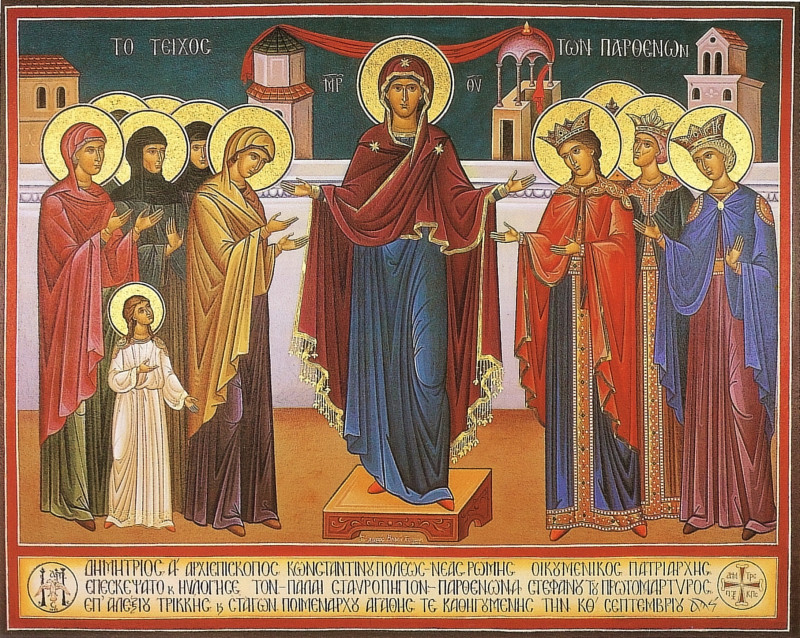On Monday afternoon, the Orthodox of Great Tuesday is chanted. The teaching of parables resembles mom’s voice
By Marina Zoziou
In the functional act of the Church, the next day begins from the afternoon of the previous one. So, the sequences performed on the night of the Holy Week concern the events of the next day. Our texts, following this practice, will describe the events of the next day, but will concern the sequence of the day published.
On the morning of Good Monday, the Divine Liturgy ends. With the help of Archimandrite P. Filoumenou Roubi, Secretary General of the Holy Archdiocese of Athens– We will give the mark of the day.
As Archimedes. Kissing Roubis, today we have the habit of working at sparse intervals. In the early centuries of the life of the Church, however, the faithful have been working in every function, that is, necessarily every Sunday and every Saturday and in the middle of the week, as many times as the Divine Liturgy. Basil the Great testifies that the Christians of his time were working four times a week.
If again it was not possible to perform the Divine Liturgy in the middle of the week, then the faithful were holding portions of Sunday’s Divine Communion And they were alone in the middle of the week. In the monasteries, And especially in the deserted places, where the monks were not able to attend other functions other than Sunday, they did the cosmic. That is, they were holding portions of the Divine Communion from Sunday or Saturday and they were privately associated. The monks, however, were small or large groups and everyone had to come and socialize in these private societies.
So a small sequence began to form. Together they prayed before society and all together they thanked God, who claimed them to associate. If there was a priest, he offered them the Divine Communion. This was done after the sequence of the evening or the sequence of the ninth hour (3 pm), why The monks usually ate once a day, after the evening. Slowly they wanted to integrate their society into a sequence that reminds the Divine Liturgy. In this way, a guy who evolved into today’s form of the previous Divine Liturgy began to form.
The parable of ten virgins
On Great Monday In the afternoon the Orthodox of Great Tuesday is chanted. In the synagogue of the day we read that this day is remembered parable of ten virgins.
The Gospel containing this parable is read on Good Tuesday morning in the Divine Liturgy. Christ said this parable shortly before the voluntary passion. The last teaching of Christ before the Last Supper is contained in the 25th chapter of the Gospel of Matthew and is purely eschatological. That is, it refers to the kingdom of heaven and the Second Coming of Christ.
At first the two well -known and congenital parables are placed: the parable of the ten virgins and the parable of the talents, or rather ‘The hiding of the talent’and then the well -known cut of the future crisis. The hymns of this day, then, talk about all three of these events.
The faithful are called upon to follow the example of the five prudent virgins, who were alert, and to avoid the example of the five babies who were rising. The readiness of a whole life of the wise virgins, that is, the long duration of their repentance and virtue, is praised.
Perhaps one of the most beloved tropics and beloved to Christians is what is chanted from Sunday afternoon to Holy Tuesday afternoon, during the first three days of the Holy Week: “I see your nymph”. This is inspired by the parable of the ten virgins. In modern Greek performance, he says the following: “My savior, I see the wedding house decorated, but I don’t have the right clothes to get in. Make the uniform of my soul, you who give the light, and save me. “
The teaching of parables resembles mom’s voice
“Christ, when he says these parables, does not care about the discipline of man. He doesn’t quarrel like he is the bad kid. On the contrary, the teaching of parables resembles the voice of the mother »points out the Secretary General of the Holy Archdiocese of Athens.
And adds: “Parases call for repentance. Repenting means turning my mind to God. ”If the mind has turned to God, immediately then the heart and the will of man also turn to God. Then the will, as an executive body of the inner man, will only accomplish what is in line with the will of God and what is written in the law of God (St. Nicholas Velimirovic).
Source: Skai
I have worked as a journalist for over 10 years, and my work has been featured on many different news websites. I am also an author, and my work has been published in several books. I specialize in opinion writing, and I often write about current events and controversial topics. I am a very well-rounded writer, and I have a lot of experience in different areas of journalism. I am a very hard worker, and I am always willing to put in the extra effort to get the job done.











